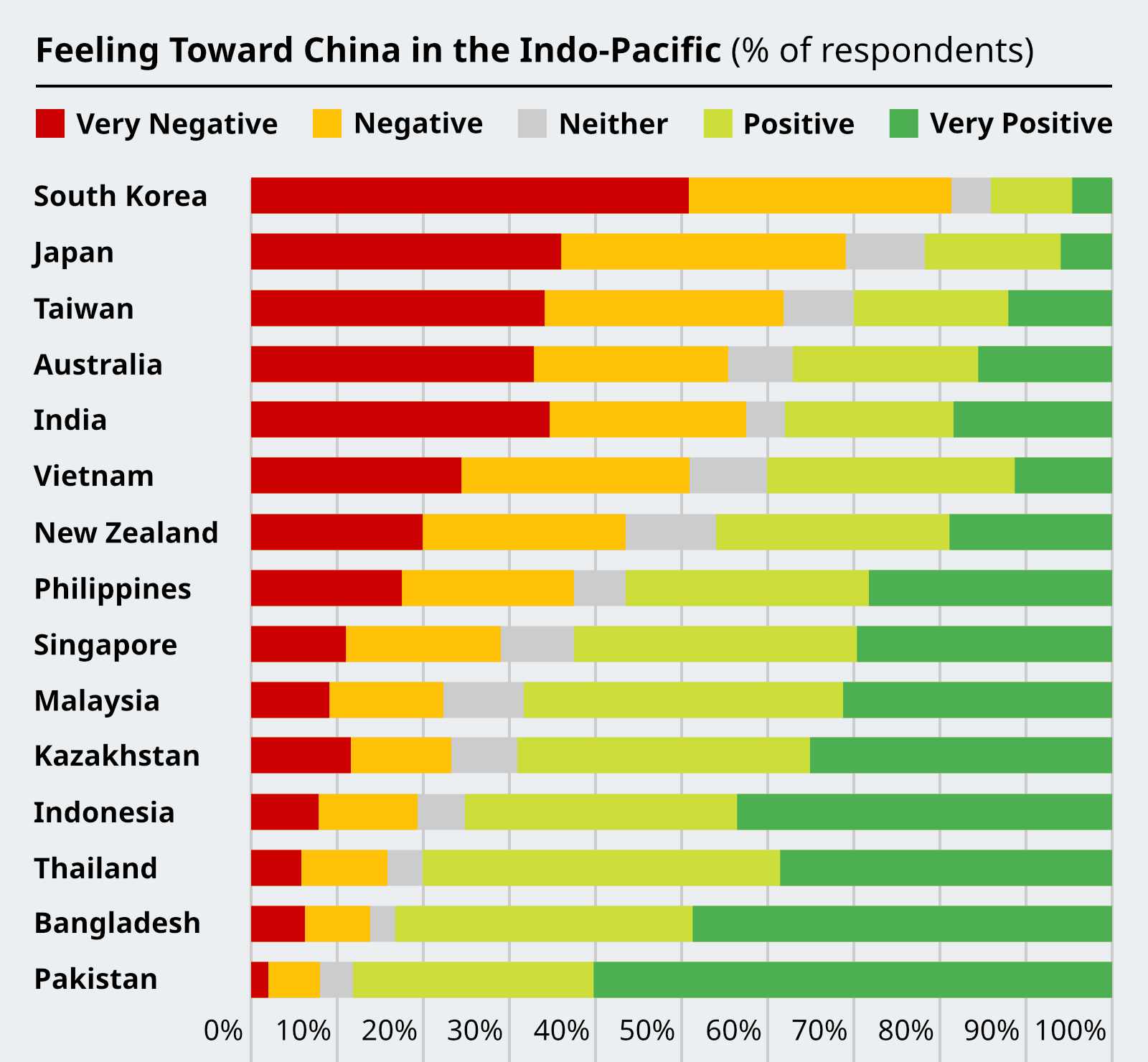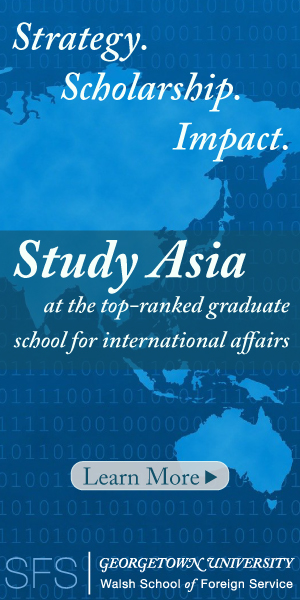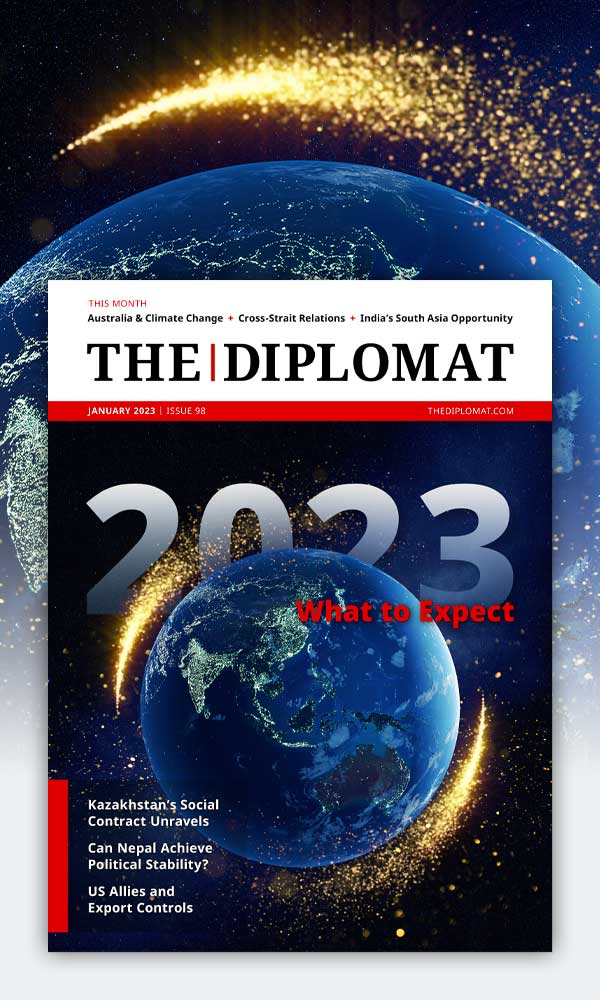| Welcome to the latest issue of Diplomat Brief. This week our top story revists the beginning of the 2022 protests in Kazakhstan, which would become known as “Bloody January.” We also have an interview with renowned historian Frank Dikötter about his latest book, “China After Mao.” |
| Story of the week |  | Politics Kazakhstan’s Bloody January: Day 1What Happened: On January 2, 2022, protesters gathered in Zhanaozen, Kazakhstan, to denounce the overnight doubling of gas prices. Over the next 24 hours, the protests expanded in both geographic scope and subject matter, spreading across the country and snowballing into demands for political change and human rights. The movement culminated in chaos and violence in Almaty, Kazakhstan’s largest city, with rumors swirling of an attempted coup before the military was sent in to put down the unrest. The events would become known as Qandy Qantar (Bloody January). What really happened remains murky, even a year later. In a series of articles for The Diplomat over the next week, journalist Cheryl Reed traces the developments of the uprising through the eyes of the Kazakh journalists who covered it – beginning with the spark that ignited the flame on that first day in Zhanaozen. Our Focus: “Because state-funded media generally doesn’t cover illegal protests, and there are few independent media outlets,” Reed writes, citizen journalists “filled a critical gap informing the country about what was happening during the early January 2022 protests.” The journalists and activists she spoke to emphasized that “regular guys” – not veteran activists, but people who had never protested before – were the ones taking to the streets on January 2, 2022. “I understood that this was something extraordinary,” videographer Issa Tazhenbayev told The Diplomat, explaining why he rushed to document the protests that emerged in Aktau later the same day. What Comes Next: The early protests were peaceful, on the part of both demonstrators and police. But over the next days, violence broke out – some reports accuse provocateurs of urging the crowds to violence to justify a heavy-handed policy crackdown. The ensuing violence made covering the events even more critical, yet vastly more difficult. “Even as a reporter making a broadcast of the events, I had to stay objective,” Azattyq reporter Saniya Toiken told The Diplomat. “But everything was screaming inside me because I was worried about the fate of my country... I am really upset that people were killed.” She added a sentiment shared by many of the journalists Reed interviewed for this series: “I am not afraid. But they are killing my hope.” Read this story |
| Behind the News | INTERVIEW Frank DikötterFrank Dikötter, chair professor of humanities at the University of Hong Kong and author of the recent book “China After Mao,” on the strict limits to China’s post-Mao reform process: “[S]ince 1976, changes have been introduced to a rigidly collectivized economy in order to build up socialism, not to abandon it… ‘Red China’ never went away.” Read the interview |
| This Week in Asia | Northeast Asia South Korea Talks US Nuclear DrillsNorth Korean leader Kim Jong Un vowed that his country will continue to expand its nuclear arsenal during a high-level party meeting at the end of 2022. In an oblique response, South Korean President Yoon Suk-yeol told media that Seoul and Washington are holding discussions on joint planning and exercises involving U.S. nuclear assets. The Biden administration denied that, however, something Yoon’s office put down to quibbles over the proper definition of “nuclear exercises. Find out more | South Asia Nepal’s New Government Jumpstarts Railway Project With ChinaNepal’s new prime minister, Pushpa Kamal Dahal, wasted no time living up to his pro-China reputation: Just a day after he took office, a team of Chinese experts landed in Nepal to conduct a feasibility study of the long-delayed Kathmandu-Kerung railway. That suggests Nepal will indeed tilt back in Beijing’s direction under Communist Party rule, after a stint at the helm by Nepal’s pro-India party, the Nepali Congress. Find out more | Southeast Asia Mr. Marcos Goes to BeijingPhilippine President Ferdinand Marcos Jr. is in Beijing this week on a three-day state visit aimed at improving his nation’s often tense ties with China. Traveling with a big business delegation, Marcos said he planned to seek cooperation with China in various areas, including agriculture, energy, infrastructure, and investment. He also is set to discuss the ongoing disputes in the South China Sea. However, given that bilateral relations advanced little even under his pro-Beijing predecessor Rodrigo Duterte, a rapid improvement in ties remains unlikely. Find out more | Central Asia Berdimuhamedov Headed to ChinaTurkmen President Serdar Berdimuhamedov has the honor this week of being Chinese President Xi Jinping’s second foreign guest of 2023 (just beaten out by the Philippine’s President Ferdinanad Marcos Jr.) In characteristic fashion, neither Beijing or Ashgabat has said much about the agenda for the upcoming visit, but they don’t have to. The most important topic between China and Turkmenistan is the all-important matter of natural gas supplies. Find out more |
| Visualizing APAC |  | 81 percent of South Korean respondents hold negative or very negative sentiments toward China – far more than any of the other 56 countries surveyed worldwide as part of the Sinophone Borderlands project. See the full picture |
| Word of the Week | Diplomacy 수령Suryeong, the North Korean honorific translated as “Supreme Leader” used to refer to Kim Il Sung, Kim Jong Il, Kim Jong Un – and now China’s Xi Jinping. Find out more |
|  |




